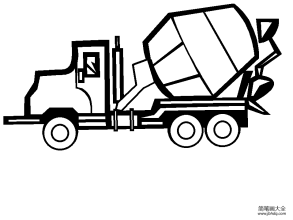Mobile Crushing Stations Versatility Unleashed in Construction Environments
- sophieaimix
- Jan 22, 2024
- 3 min read
In the ever-evolving landscape of construction, the demand for versatile and efficient equipment is paramount. Mobile crushing stations have emerged as indispensable tools in construction projects, providing flexibility and adaptability across various environments. This article explores the multifaceted applications of mobile crushing stations and their ability to thrive in diverse construction settings.
Urban Construction:
Mobile crushing stations find extensive use in urban construction projects where space is often limited. These compact and mobile units can be easily transported to construction sites within city limits. Their ability to crush materials on-site reduces the need for transportation and minimizes the environmental impact associated with moving materials over long distances. Urban construction sites benefit from the efficiency and space-saving attributes of mobile crushing stations.

Infrastructure Development:
Infrastructure projects, including the construction of roads, bridges, and tunnels, require efficient material processing solutions. Mobile crushing stations excel in these environments by providing on-site crushing of raw materials like concrete, asphalt, and aggregates. The proximity of the crushing process to the construction site streamlines operations, leading to faster project completion and optimized resource utilization.
Remote and Challenging Terrains:
Construction projects in remote or challenging terrains, such as mountainous regions or areas with limited accessibility, pose logistical challenges. Mobile crushing stations, equipped with robust tracks or wheels, navigate through such terrains with ease. Their mobility allows construction companies to crush materials directly at the source, eliminating the need for additional transportation and reducing the overall project timeline.
Demolition Sites:
The demolition of existing structures generates a substantial amount of debris that requires efficient processing. Mobile crushing stations are well-suited for demolition sites, where they can crush and recycle materials directly on-site. This not only saves time but also contributes to sustainable construction practices by reusing demolished materials in new construction projects.
Mining Operations:
In the mining industry, mobile crushing stations play a pivotal role in material extraction and processing. These stations are designed to handle a wide range of minerals and ores, providing mining operations with a flexible and efficient solution. The mobility of these units allows for relocation as mining sites evolve, optimizing resource extraction while minimizing downtime.

Quarry Operations:
Quarrying involves the extraction of raw materials such as aggregates, gravel, and sand. Mobile crushing stations are integral to quarry operations, where they efficiently process extracted materials on-site. The ability to move the crushing station closer to the extraction points enhances operational efficiency and reduces transportation costs, making them indispensable in quarrying activities.
Environmental Remediation:
Construction sites often require environmental remediation to address soil or material contamination. Mobile crushing stations can be deployed in these scenarios to process and remediate contaminated materials on-site. This approach reduces the need for transporting hazardous materials, contributing to safer and more sustainable remediation practices.
Temporary Construction Sites:
Temporary construction sites, such as those for events, exhibitions, or temporary structures, benefit from the mobility and flexibility of crushing stations. These units can be quickly deployed and set up at temporary locations to process materials efficiently. The ability to adapt to changing construction demands makes mobile crushing stations ideal for short-term projects.
Conclusion:
Mobile crushing stations have become indispensable assets in the construction industry, offering unparalleled versatility across a spectrum of environments. From urban construction to remote terrains, these units streamline material processing, reduce transportation costs, and contribute to sustainable construction practices. As the construction landscape continues to evolve, the adaptability and efficiency of mobile crushing stations position them as crucial components in the quest for more agile and sustainable construction processes.






Comments